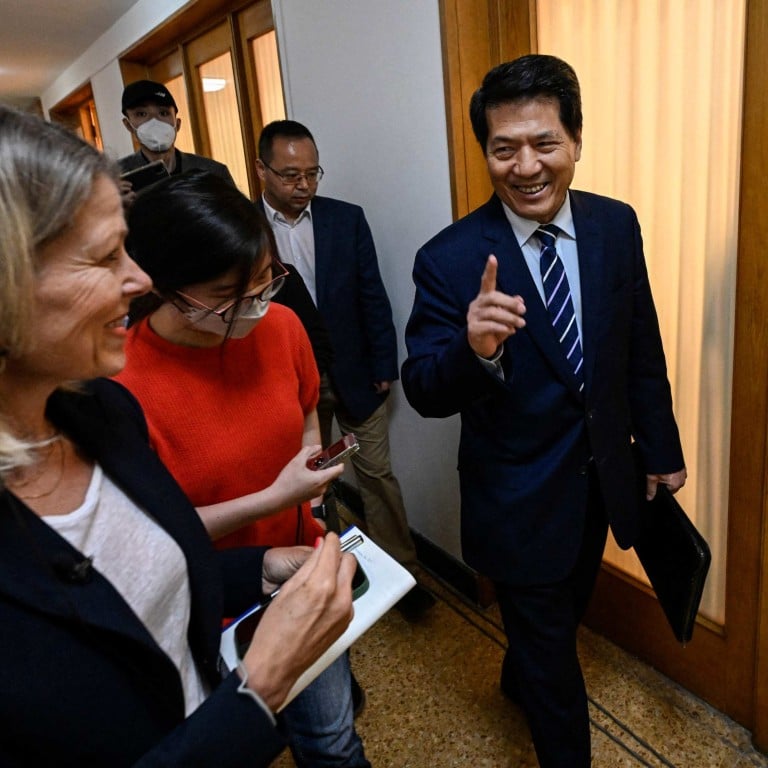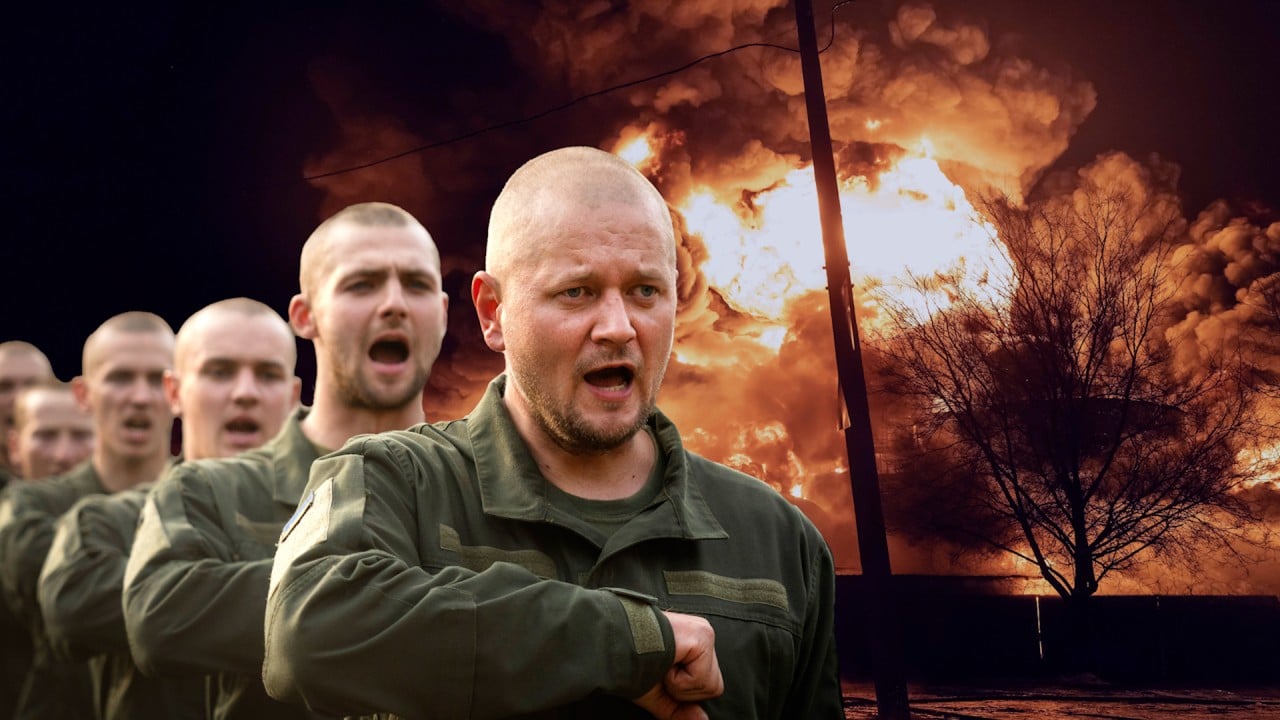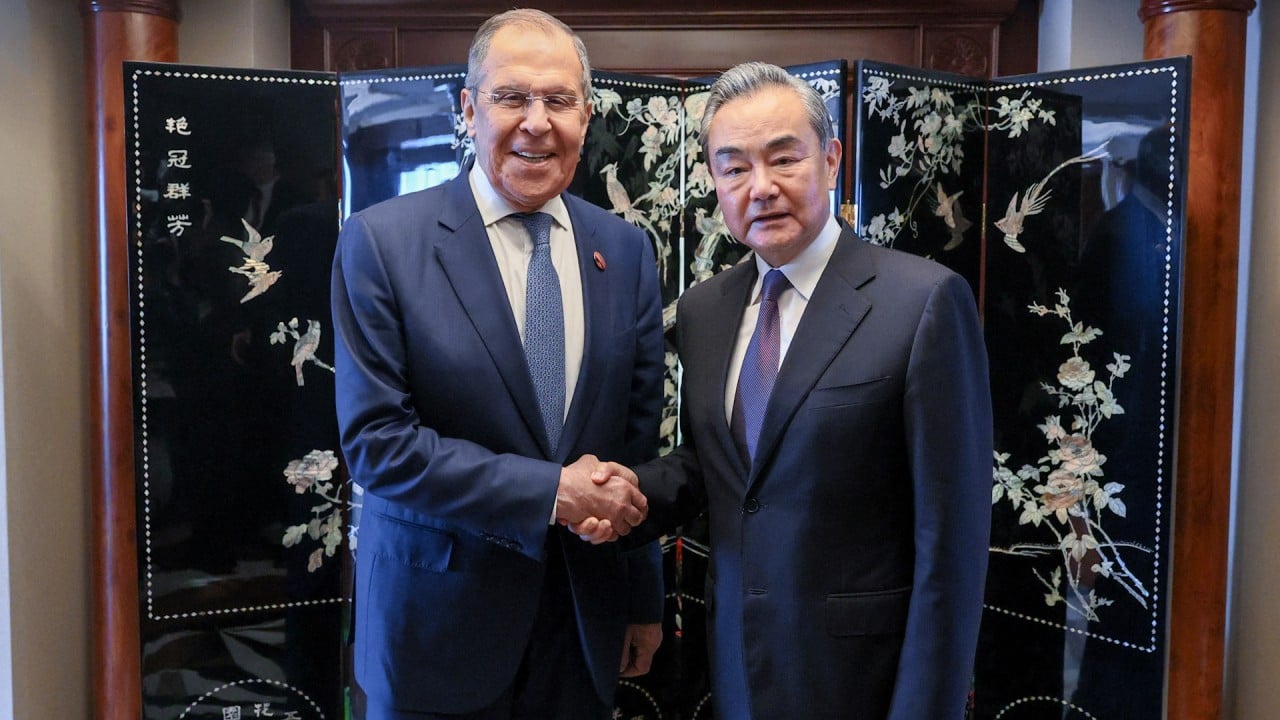
China is playing the Ukraine peace mission card again. Why now?
- Special envoy Li Hui has embarked on another trip to Europe as the conflict grinds into a third year
- The efforts are aimed at countering criticism that Beijing has no intention of seeing an early end to the war
So what has motivated Beijing to dispatch another so-called peace mission, when it struggles to deal with economic difficulties and other pressing challenges at home and abroad?
Much has changed for Beijing and its relations with the warring parties and the US-led West since Li, China’s former long-time ambassador to Moscow, made his first trip in May last year.
Li’s latest trip was reportedly “hastily arranged”, according to Bloomberg, and came amid mounting calls from Ukraine and other European countries in the past few weeks for China to play a greater role to end Russia’s aggression.
Kyiv, which is scrambling to maintain international support after its failed counteroffensive and delayed military supplies from Washington, has appealed to Beijing repeatedly.
Although Zelensky later denied a Politico report that described the incident as a deliberate snub by Beijing, the story still made the rounds, as further proof of China’s reluctance to play an active role in ending the war.
Many observers believe it is in China’s interest to see a costly, grinding and drawn-out war between Russia and the West, because it would drain Washington’s resources and increase Moscow’s dependence on Beijing.
A Nikkei report in December, citing multiple sources, seemed to support this view, claiming Russian President Vladimir Putin told Xi during the latter’s Moscow visit a year ago that Russia was prepared to fight Ukraine for at least five years.
Li’s latest mediation trip is clearly aimed at countering criticism and rumours that China is playing for time with no intention of seeing an early end to the war.
During his stop in Moscow on Sunday, Li met Russian deputy foreign minister Mikhail Galuzin, pledging China was ready to help “mediate and build consensus among Russia, Ukraine, and other relevant parties” and “promote a final political settlement of the Ukraine crisis”.
“History shows that conflicts in the end have to be settled through dialogue and negotiation. The more acute the problem is, the more important it is not to give up efforts for dialogue,” he said according to an official Chinese readout.
But the Chinese statement did not mention an agreement reached between Li and Galuzin that – according to the Russian foreign ministry – no settlement on Ukraine is possible without Moscow’s participation.
While Kuleba briefed the top Chinese diplomat about Kyiv’s plans for the peace summit, Wang reiterated that Beijing would “continue to play a constructive role in bringing an early end to the conflict and rebuilding peace in Ukraine and will not give up as long as there is a glimmer of hope”.
Time could be ripe for a China-led peace proposal to end Ukraine-Russia war
But arguably more importantly, Beijing’s renewed interest in mediating in the Ukraine war comes as it tries to rebalance its ties between its quasi-ally Moscow, and Washington and its Western allies amid growing external headwinds.
While it still sees Russia as its top ally in its long-term rivalry with the US-led West, Beijing is clearly aware of the diplomatic price it has paid for its deepening “shoulder-by-shoulder, back-to-back” alignment with Moscow.
Beijing has alienated itself by its refusal to condemn Russia’s invasion or join the West-led economic sanctions when the Ukraine war has pushed Europe and many in Asia closer to the United States.
And more worryingly, according to Yan Xuetong, a strategist at Beijing’s Tsinghua University, China’s lack of flexibility on the war compared to India, which has managed a more balanced approach between Kyiv and Moscow, has risked costing China’s leadership role in the Global South.
With severe economic woes at home and mounting external challenges, it is clearly in Beijing’s interest to mend ties with the US, Japan and Europe. So it is not surprising that Beijing is playing the peace mission card again in a bid to ease tensions with the West and showcase itself as a responsible global player.



